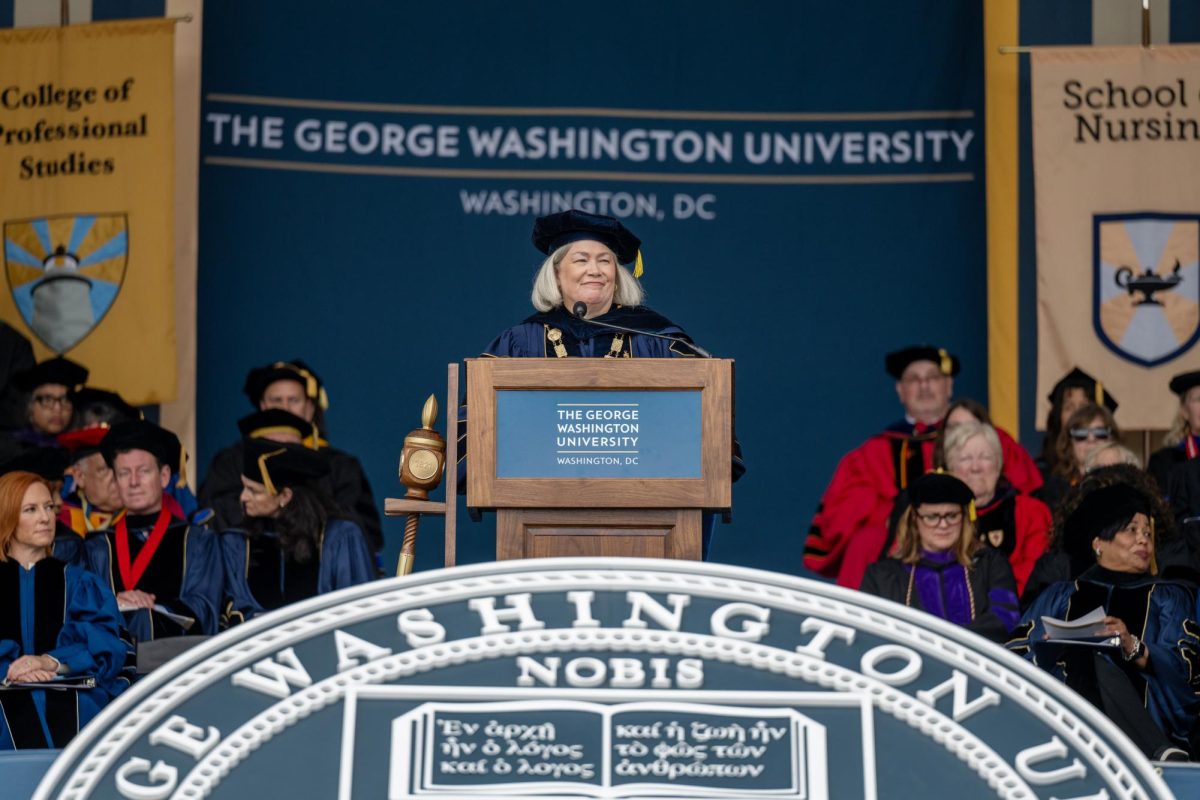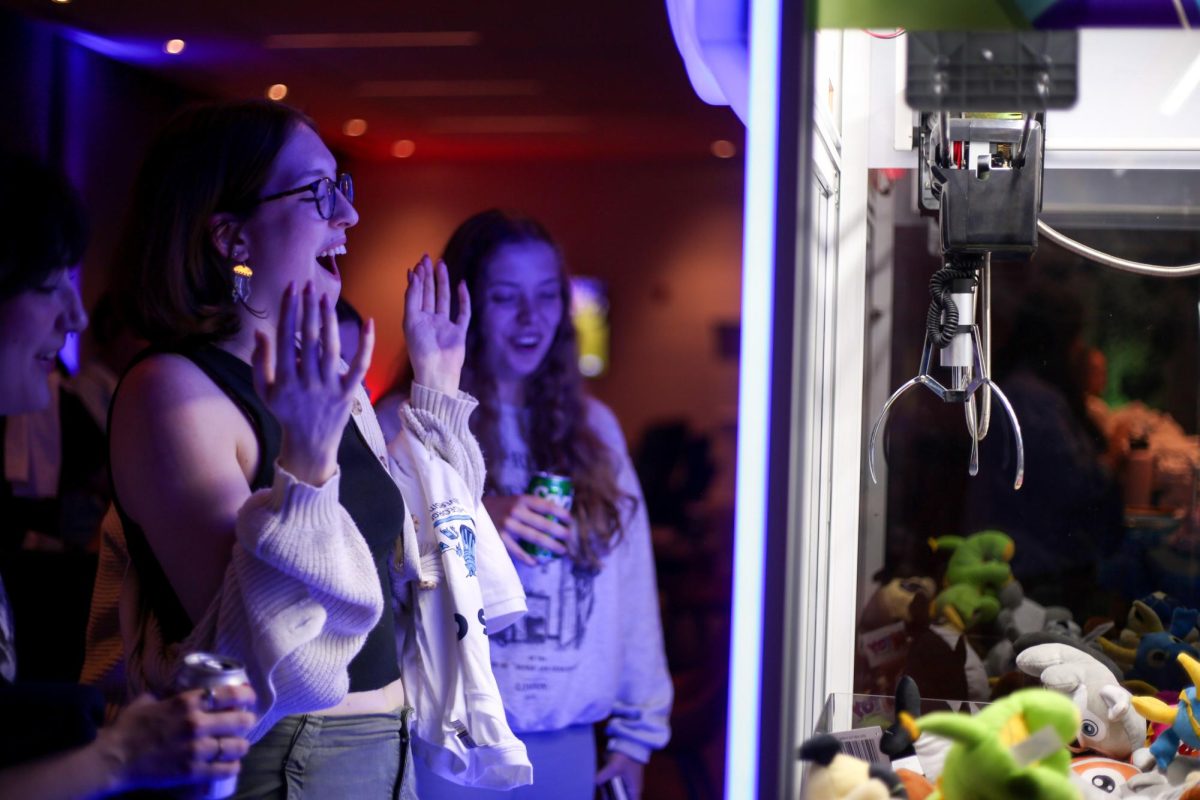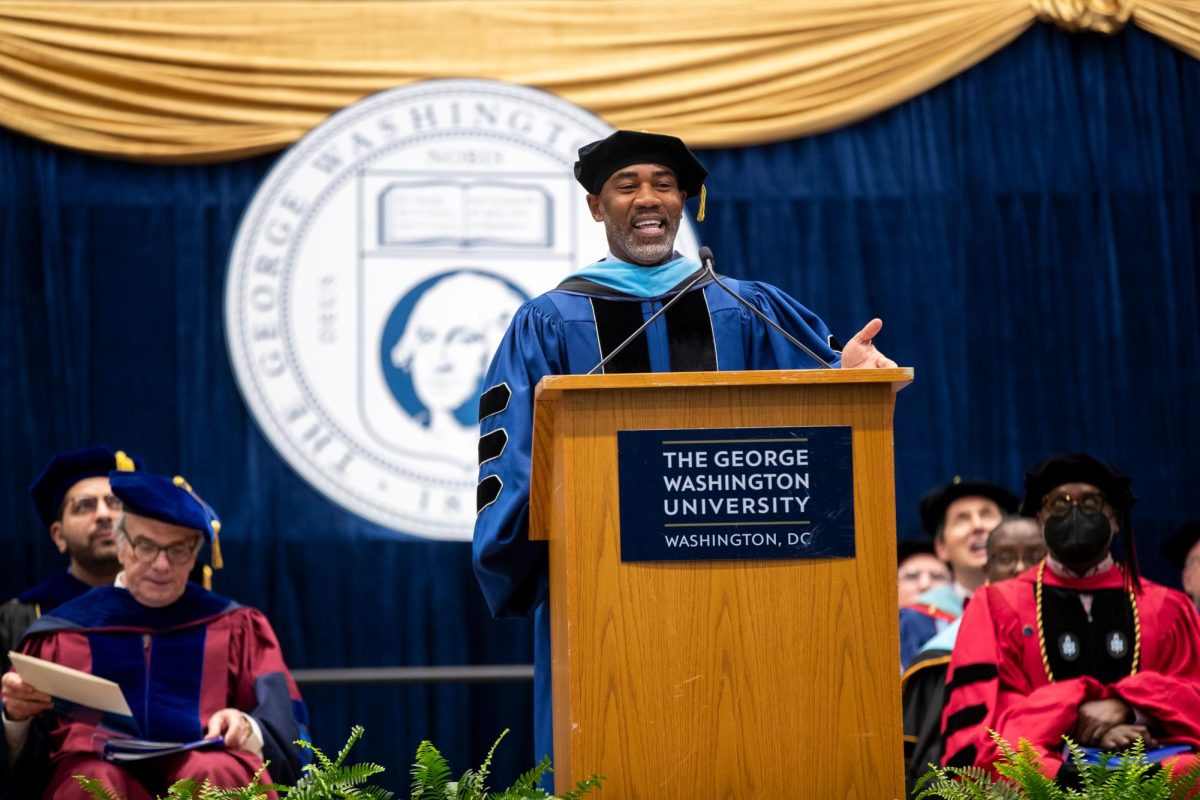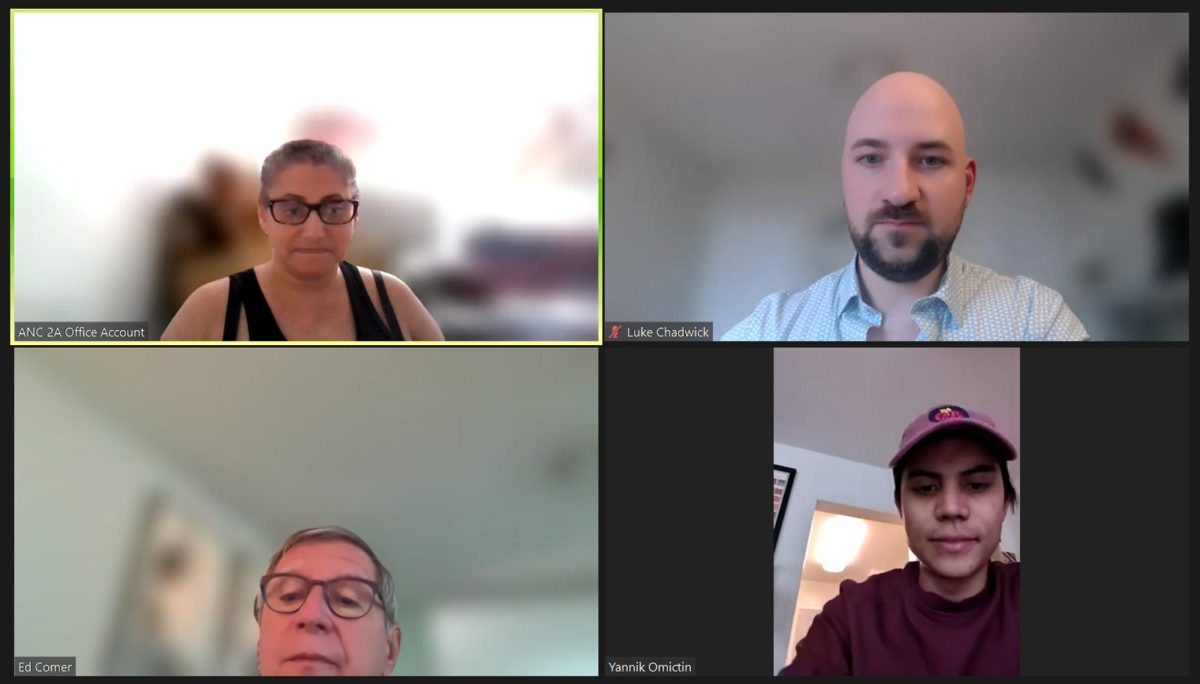An author and Washington Post reporter talked about the intersectionalities between being a Black mother, woman and journalist at an event Tuesday.
Washington Post pop culture reporter Helena Andrews-Dyer discussed her new memoir, “The Mamas: What I Learned About Kids, Class and Race From Moms Not Like Me,” which focuses on her experience raising children in D.C. as a Black woman. The School of Media and Public Affairs hosted the event, which was moderated by Imani Cheers, an associate professor of digital storytelling.
Andrews-Dyer said she lives two blocks from Howard University, a neighborhood she said is historically Black but becoming increasingly gentrified. She said after joining a local “moms” Facebook group and seeing there were very few women of color in it, her journalistic instincts kicked in. Andrews-Dyer said she wanted to explore the historical implications of what the Facebook group represented.
“D.C. considers itself a very progressive place,” Andrews-Dyer said. “But then when you start having real conversations with people, very progressive people, you find that their lives are extremely homogeneous.”
Andrews-Dyer said she hopes to dissuade myths that assume marginalized people’s experiences are “niche” in comparison to those of cisgender white people through sharing her experiences as a Black woman, wife, mother and journalist.
“I think it’s important for me to sometimes dig from that place specifically, so I can show that our stories can be universal,” Andrews-Dyer said.
When asked about backlash against LSU forward Angel Reese’s celebrations during the NCAA Division I Women’s Basketball Tournament and the recent conversations arising from it about how Black women like Andrews-Dyers herself are represented, she said media narratives like those depicting Black women as disrespectful need to change.
“We do have to be very aware of the language that we’re using,” Andrews-Dyer said.









